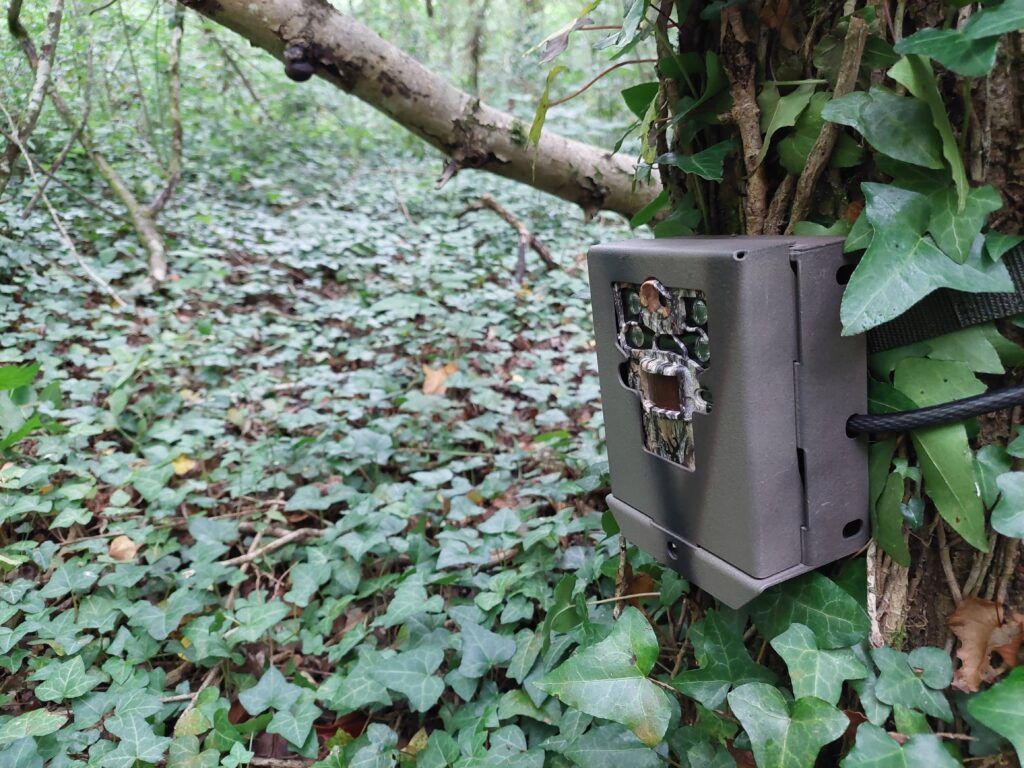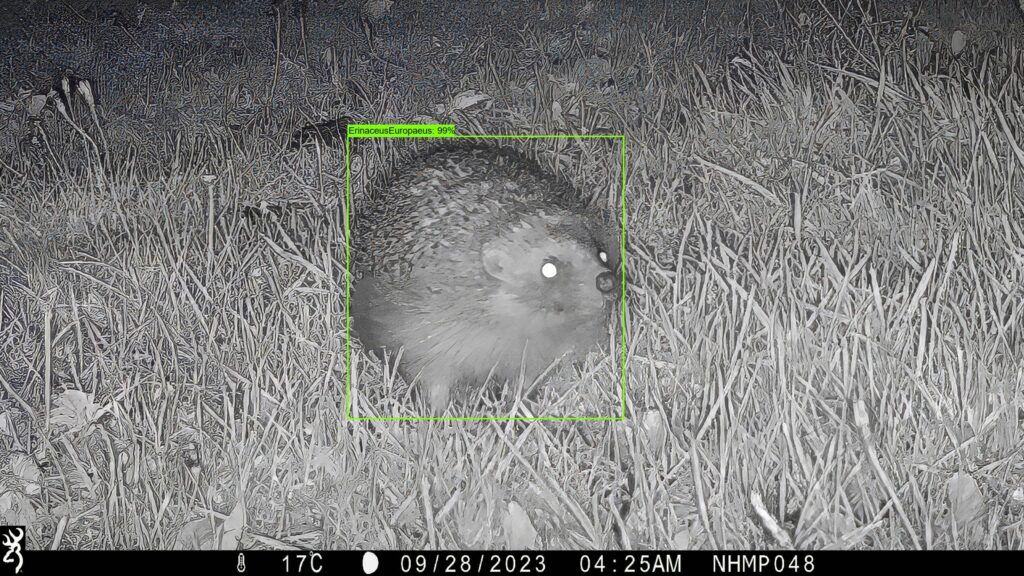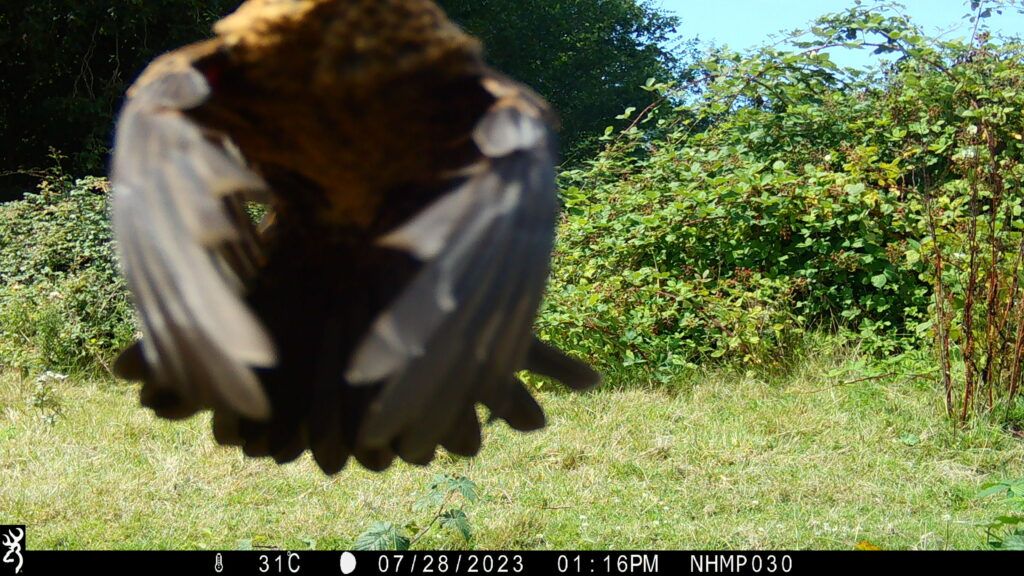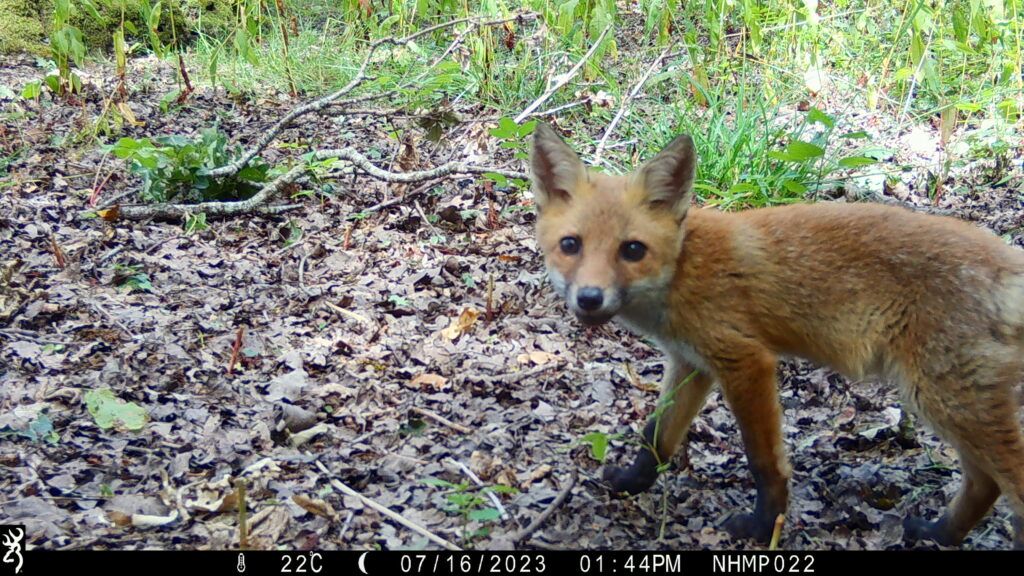The National Hedgehog Monitoring Programme (NHMP) is an exciting new project aiming to calculate robust population estimates for hedgehogs. The project officially launched at the end of March 2024 and the pilot phase is currently running for three years, until May 2026. We started our first surveys last year (2023) and are looking forward to expanding the programme. In this blog, Emma Cartledge, NHMP Research Fellow, explains why the project is needed, as well as sharing some behind-the-scenes reflections from the first year of the NHMP.
Why is the NHMP important?
Hedgehogs, Great Britain’s much-loved garden visitors, are one of many animals impacted by humans. I count myself lucky to have gone from working with one very charismatic native mammal to another. First, fluffy, irresistibly cute and sleepy hazel dormice, then larger spiky (but also cute) snuffling hedgehogs. Despite their exteriors, I’ve discovered these animals have more in common than meets the eye. Other than bats, dormice and hedgehogs are Britain’s only hibernating mammals, and both have been struggling with the same sorry story: they’re listed as Vulnerable to extinction on the national Red List. Unfortunately, hedgehogs’ defensive spikes haven’t protected them from the challenges associated with habitat loss and declining food supplies. Amongst other threats, loss of hedgerows, agricultural intensification and impermeable gardens have led to this rather spiky situation (sorry).
Frustratingly, we don’t currently have a good idea of hedgehog population numbers. This is really important, because we need to work out where and why hedgehogs are struggling most, so that effective conservation measures can be put in place. The NHMP aims to calculate robust population numbers for hedgehogs and with this information, we’ll track hedgehog numbers over time and across different habitats. We’ll use the results to guide us in conservation measures to reverse the decline of this iconic species.
Who is involved?



The NHMP is a collaborative project run by People’s Trust for Endangered Species, The British Hedgehog Preservation Society, Nottingham Trent University (NTU), Zoological Society of London, London Hogwatch, MammalWeb and Durham University, with additional funding support from Natural England. I’m based at NTU, where we’re helping set up the survey sites and leading on the project’s research strategy. It’s a privilege to work with the NHMP team, which comprises experts in hedgehogs, conservation, citizen science, population monitoring and AI.
How does it work?




We’re working with volunteer ‘hubs’, which are organisations (or groups of organisations) coordinating surveys within their region. The NHMP team provides equipment, training and support. Volunteers at each site deploy 30 cameras in a grid across a 1km2 area. Of course, this generates lots of images! We had over 2 million from our first survey year, which have all been uploaded to MammalWeb. This is where our citizen scientists come in, as we need helpers to identify animals photographed by our cameras. You can find out more about this on our website. Once we know where the hedgehogs are, the team will use the Random Encounter Model to calculate population numbers. We can use the same method to look at other species too, which is another advantage of how we’re collecting the data.
Reflections from the 2023 surveys
I joined the project in August 2023, so jumped straight into the field season. We had lots of interest and enthusiasm from potential hubs, which was great, and meant lots of organising to maximise the use of our cameras and get them to the right place at the right time. This was good experience for planning the next survey season, so we now have the databases and spreadsheets ready-to-go for 2024. By the end of the field season last year (end of October), the team had set up 13 surveys in England and Scotland, surpassing our first year goal of 10. At least seven of these sites have captured images of hedgehogs! And it’s likely more will be found by our MammalWeb spotters.
Feedback from hubs and volunteers in the first year was really positive. Here are some of my favourite quotes from participants in 2023: The training session was interesting and informative while meeting nice people with the same goal.; The feeling of people caring for the environment and wildlife [was the best bit about being involved]. The feeling was mutual, I found it inspiring to meet so many people enthusiastic about conservation!
Plans for 2024
The field season for 2024 has just begun and we have lots more hubs signed up to be involved this year. We’ve started a few surveys already and, as I write, the images from the first one are being uploaded to MammalWeb. By the end of the year, we’re going to be much closer to our 40 site target (to be achieved by the end of the pilot), with around 35 sites planned. We’re aiming to have a good spread of sites across Great Britain, so this year we’ll have our first survey in Wales and continue to expand across England and Scotland. We’re constantly developing resources and training opportunities for our hubs and volunteers, so that’ll also be at the forefront of the agenda in 2024. Watch this space for our first population estimates as well!
How to get involved
There are a several ways you can get involved in the project, for example by volunteering at a local hub or registering as a ‘spotter’ on MammalWeb. Visit the website www.nhmp.co.uk and sign up to receive more information. On the website you can also find instructions on how to get started with spotting on MammalWeb – it’s a lot of fun! You can find out lots more about hedgehogs at Hedgehog Street, a project jointly run by PTES and BHPS, including information on helping hedgehogs in your own garden.
Find out more about the National Hedgehog Monitoring Programme
